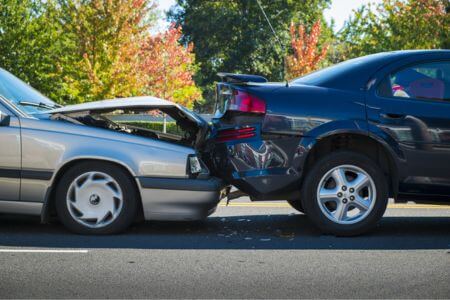Driving in the state of Florida while your license is suspended or revoked is a potentially serious charge, even if you are driving on an out-of-state license that has been suspended. Under Florida law, the prosecution must prove DWLSR with knowledge, which means the prosecution has the burden of proving to the court or jury that you were aware that your license was suspended. If you do not have knowledge of the suspension, you may still receive a civil (non-criminal) infraction for driving while your license was suspended or revoked without knowledge.
Driver’s licenses are most commonly suspended for unpaid traffic tickets or child support, failure to appear in court after summons, acquiring 12 points in 12 months, and criminal convictions such as DUI’s or drug charges.
A first-time DWLSR is a second-degree misdemeanor punishable by up to 60 days in jail and a $500 fine. If you cannot reinstate your license while the case is pending, you will likely be sentenced to a period of 6 months of probation, during which the court will require you to obtain a valid license. For those who are able to clear their license, however, the State Attorney’s Office will often agree to reduce the criminal charge to a civil infraction. For those who are unable to clear their license within a reasonable period of time, however, many judges will sentence the person to up to 60 days in jail.
If you are charged with a second DWLSR, the offense will be elevated to a first-degree misdemeanor. If convicted of a second DWLSR in Florida, the maximum penalty increases from 60 days to up to one year in jail. Additionally, the fine may increase to up to $1,000.
When someone is charged with a third-time offense of driving a vehicle while on a suspended, restricted, or revoked license, it is considered a third-degree felony.
Any third or subsequent offense of this nature, upon conviction, can face these severe penalties:
The length of time between the first and the third offense matters, too. If the driver is convicted of three DWLSR charges within three years, the sentencing court will order a 5-year revocation of their driver’s license, as well as potential increased fines and possible jail or prison time.
Additionally, the driver will be labeled a “habitual traffic offender,” also known as an HTO, by the State of Florida.
In many cases, people with multiple offenses will also have their vehicle impounded by the arresting officer. The owner/lessor of the vehicle would have to pay high fees to get the vehicle out of impoundment. If the fees are not paid and the vehicle is not picked up within 35 days, a lien is typically placed on it.

There are additional legal complications when you have an accident while driving without a license in Florida. Whether it is a first offense or you have prior convictions for DWLSR, Florida takes it very seriously.
The seriousness of the accident will determine the penalties and whether other cars were involved. Penalties can include fines, jail time, license revocation, vehicle impoundment, or other consequences deemed necessary by the court.
If another person was seriously hurt or killed in the accident, the driver would be charged with Driving Without a License Causing Serious Bodily Injury or Death, which is considered a third-degree felony, with the associated penalties, including:
Under certain conditions, Florida allows some individuals with suspended or revoked licenses to apply for a hardship license to have limited vehicle access. Hardship licenses are typically limited to allowing people to drive to and from work, school/college, medical appointments, or church/religious service.
First, the individual needs to complete an Advanced Driver Improvement (ADI) school program. Then, he or she should go to a local Administrative Reviews Office, the division of the Florida Department of Highway Safety & Motor Vehicles (FLHSMV) that handles driver's license suspensions and issuance of work-purposes/business-purposes licenses, also known as hardship licenses. The applicant will submit the application, proof of ADI school completion, pay the reinstatement fee, and pay any other applicable fees.
Some individuals are ineligible for a hardship license, including those who were driving in a DUI accident that resulted in serious bodily injuries, have been charged or convicted of vehicular manslaughter or criminal vehicular manslaughter, and are second-time or subsequent offenders convicted of a DUI, among other similar circumstances.
Long-term consequences of repeated offenses can occur in one's personal, professional, and social life. The impacts of convictions, loss of driving privileges, and time in jail or prison are widespread.
These types of offenses can also affect your ability to obtain insurance for your vehicle and significantly raise your monthly premiums. Driving without a license charge could result in high rates and difficulty getting insurance for many years.
Repeated offenses of driving without a license can negatively impact one's ability to secure certain types of employment. Multiple types of jobs require the ability to drive vehicles, including careers in shipping, logistics, and transportation, jobs with city or state government, health care or educational transportation, real estate, and certain sales jobs, among others.
Working with an experienced St. Petersburg traffic ticket attorney can make a big difference in the outcomes of cases, as well as potential consequences across multiple aspects of your life for many years to come. Contact us today for a free consultation.